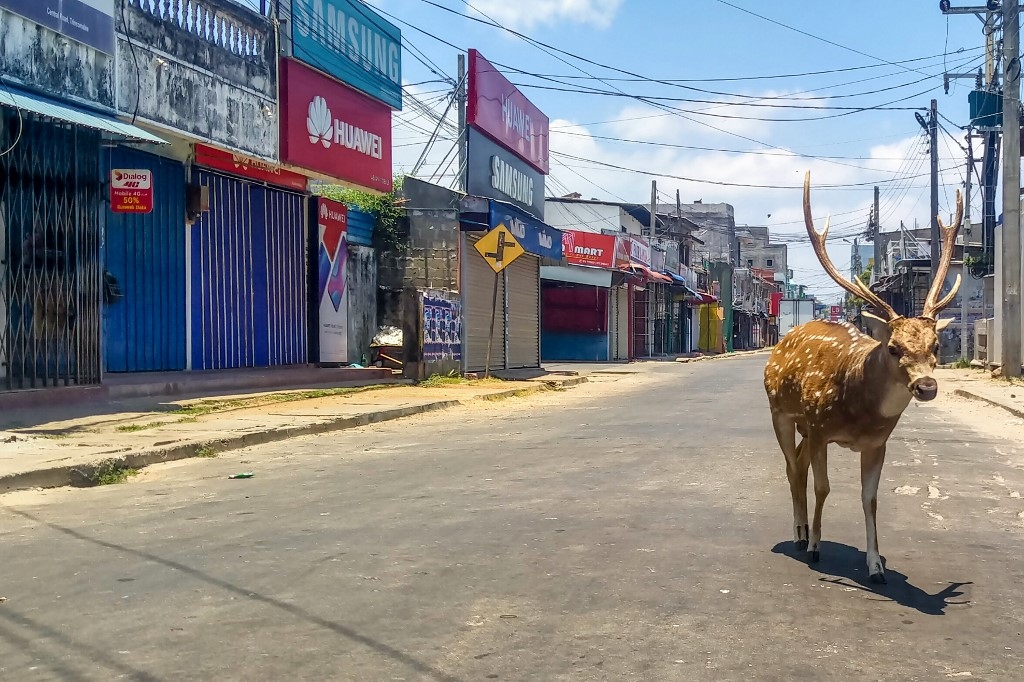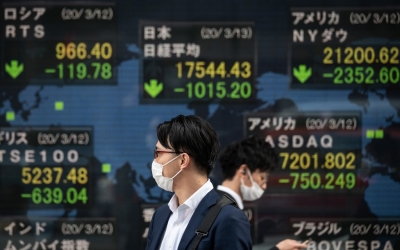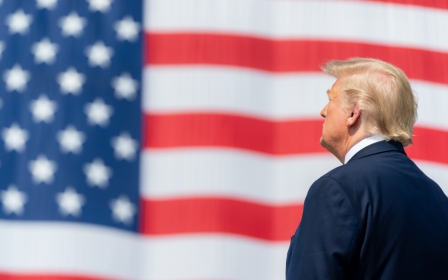Coronavirus: A wake-up call for global consumerist culture

The world had grasped the arrival of the new status quo before London's Economist magazine announced it in the third week of March, with a cover depicting the globe hung with a banner reading "Closed".
People have had to adapt to this new reality since the Covid-19 outbreak was deemed a pandemic.
Mankind has entered a stage of quiescence unprecedented in modern history: factories have ceased to operate; highways are free from traffic jams; flocks of planes have stopped flying; the sky is clearer than one could have ever imagined; and frenzied cities have taken on the tranquillity of the countryside.
Serenity and reflection
This hibernation-like state did not come in response to the world's fuming students in 2019, calling for action against climate change, nor is it due to international covenants calling for a halt to ecological destruction and a reduction in carbon dioxide emissions.
The era of coronavirus has forced humanity to give up an excessively consumerist lifestyle that has become extremely harmful.
Society is globally embarking on a new experience that will have a profound moral and philosophical impact on generations to come, especially if this period of serenity and reflection extends for additional months.
Was our previous way of life responsible and conscientious? Was the unruly consumption culture and excessive production useful?
Consumers have swiftly discovered that life is possible without many of the brands that have long dominated the markets, billboards, televisions and internet banners
The world needs radical reforms in terms of its production and consumerist culture.
This was already evident through economic, social and ecological crises that unfolded long before coronavirus.
But appeals and international agreements failed to spur any significant change.
The Millennium Development Goals, launched by the United Nations in 2000, have not been achieved, and their failure was announced upon reaching the 2015 deadline.
In 2019, the international community recognised shortcomings in addressing the climate issue. Economic interests have impeded reforms, leading to the maintenance of existing consumer culture.
Useless luxuries
Today, societies have lost their immediate desires for high-end brands, excessive luxuries and lavish lifestyles, through which they show off their material wealth.
Sellers of luxury goods have been neglected in the weeks leading up to "closing the world". People instead began to jostle for basic goods, leaving other products that have revealed themselves as virtually useless piled in cupboards; who truly benefits from luxury items today?
It should be evident that the traditional consumerist lifestyle preceding the so-called "corona era" was a burden on the planet and on humanity as well.
The public was pushed to buy things whose substantial value was not confirmed in their acquisition.
Consumers have swiftly discovered that life is possible without many of the brands that have long dominated the markets, billboards, televisions and internet banners.
Who would have imagined a world without these brands? Those who earned a living through advertising surely deserve sympathy and support, but it must be acknowledged that many of these brands have been burdening the pockets of consumers and the planet's ecosystem.
Mankind now has an unprecedented, extraordinary opportunity for reflection, contemplation and change of the "old order".
Now is the time to reconsider the virtue of excessively producing items that drain the planet's resources and cause environmental damage, without any genuine need.
Fabricated demand
In the "pre-corona era," big labels urged consumers to abandon older, yet still usable products, and buy new ones instead, only to be abandoned later. The vicious cycle of "generations" of products was an established method used to lure consumers into buying more.
Fast fashion, along with constantly changing trends in furniture, electronics and cars, would tempt audiences into swapping products season after season.
Big companies have created this false sense of need to profit off of the fabricated demand. And as more money is spent on useless items, the damage to the environment mounts.
Right now, societies have a rare opportunity to reform the culture of consumption, freeing themselves from brands and labels, and revise irresponsible lifestyle choices that damage the planet and future generations.
It is the perfect opportunity for fundamental reforms in production patterns, and consumption and lifestyle habits, according to new priorities that adhere to responsible, reformative standards.
There is, of course, another approach that appeals to large corporations and policymakers indifferent to the future of humanity: to merely wait for the end of this phase of consumer hibernation, and then return to the norm of polluting the air with toxic substances, crowding the highways with cars, accumulating goods that carry no authentic value, and draining the planet's remaining natural resources.
The views expressed in this article belong to the author and do not necessarily reflect the editorial policy of Middle East Eye.
Middle East Eye propose une couverture et une analyse indépendantes et incomparables du Moyen-Orient, de l’Afrique du Nord et d’autres régions du monde. Pour en savoir plus sur la reprise de ce contenu et les frais qui s’appliquent, veuillez remplir ce formulaire [en anglais]. Pour en savoir plus sur MEE, cliquez ici [en anglais].







